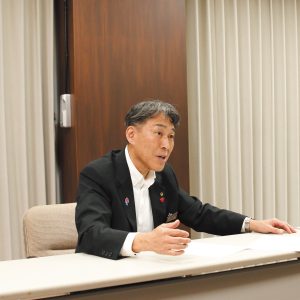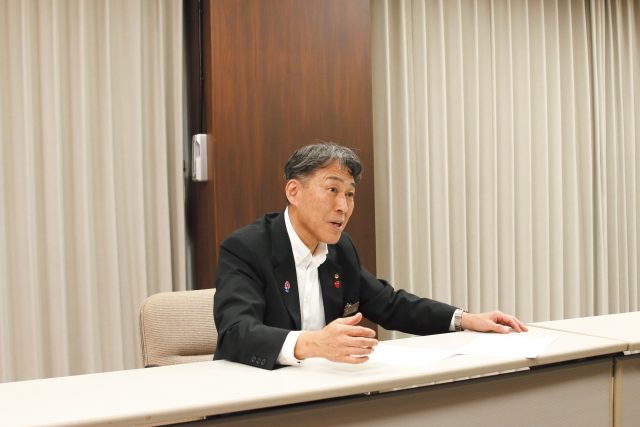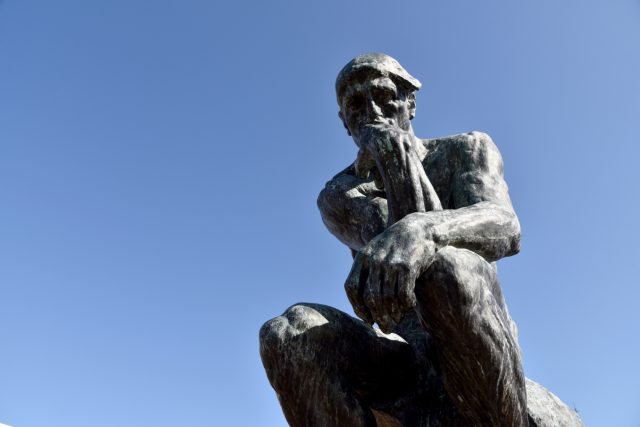「高等教育の再創造」という使命の下、2014年に開校したミネルバ大学。講義はすべてオンラインによる少人数制セミナーで行われ、学生たちはサンフランシスコをはじめ世界7都市にあるキャンパスを4年間で巡りながら学びを深めていく。
その最新の教育システムや質の高いカリキュラムは世界で注目され、名だたる名門大学を入学辞退して進学する学生がいることでも知られる。2017年には日本からも初の合格者が誕生した。
創立者のベン・ネルソン氏に、ミネルバ大学が目指す教育について話を伺った。
私たちが考えるリベラルアーツをベストな形で伝える方法
――この1年、コロナ禍による急激な教育のオンライン化に戸惑う教員の声が多く聞かれます。ミネルバ大学はオンラインのみで質の高い授業を行い、世界的な評価を受ける稀有な大学ですが、こういった意見についてどのようにお考えですか。
とても大事な質問ですね。新型コロナウイルス感染症により、多くの教育機関が想像すらしていなかった遠隔授業が始まりました。本学は、その何年も前からテクノロジーの教育への活用法を探りながら、新たな高等教育の創造について向き合ってきました。私たちが考えるリベラルアーツを提供するための最良の方法が、オンライン授業だったのです。
オンライン授業を対面授業と同じアプローチで行っても、よい結果は生まれません。私たちは、オンラインのほうが真の意味で質の高い教育を提供できると考えています。ミネルバ大学の授業は少人数編成のセミナー形式を基本としているため、モニターに映し出される学生たちの表情や仕草から授業への理解度や真剣さがはっきりわかります。また、一人ひとりの発言時間が自動的に計測され、教員は全体の発言量のバランスを見ながら授業を進めることができます。
通常の大学と同様、授業はすべてライブ配信されるため学生は必ず出席しなければなりません。しかし、一方で私たちは講義を録画し、いつでも見返すことができるようにしています。学生たちは教授の話していたことやフィードバックを何度でも確認できます。与えられた多くの情報を学生が咀嚼し、自分のものとするためにも大変有効な手段なのです。
That’s a really important question. Many of the educational institutions launching remote classes in response to the COVID-19 pandemic never imagined themselves in this situation. Minerva started looking for ways to reinvent higher education years ago, seeking out new techniques for teaching technology. We found that online classes offered the best approach for providing a liberal-arts education as we imagined it.
But online classes won’t deliver good results if you just apply the same approach as in-person classes. We believe online classes are uniquely positioned to offer high-quality education in the true sense of the term. At Minerva, seminars with small groups of students are the basic class format. Instructors can clearly discern how well students are understanding the lessons and how seriously they are applying themselves by looking at the students’ expressions and behavior as they appear on the monitor. Also, the amount of time each student spends talking is automatically measured, so instructors can observe the balance of degree of verbal contribution as they proceed with the lesson.
All classes are conducted live and attendance is mandatory. We also record the classes so students can return to them and see what they said and the feedback they get from professors. These features make online classes an incredibly effective strategy for assimilating large amounts of received information and making it the students’ own.
ミネルバ大学の授業は、コロナ禍の影響をほとんど受けていません。パンデミックの中でも学生たちは質の高い教育を修め続けています。なぜなら私たちの教育は常に進化し続けるようにデザインされているからです。
この複雑化した現代においては、あらゆる状況に対応できるよう個別具体的に教育することは不可能です。そこで重要なのが応用力です。つまり未知の状況に遭遇したときに、何をすべきか考え、適切に行動する能力を育てる。これが私たちの考える“教育”です。
これを可能にするためには、学生たちがある教員の下で学んだ内容を、別の教員の授業で活用できる学習環境が必要です。残念ながら、現代の教育はそのようにはデザインされていません。例えば、科学の授業で学んだ内容を歴史の授業で応用してみる、とはならないのです。実際の人生では、このような場面に遭遇することは珍しくありません。私たちが教育プログラムをデザインする際には、学生たちが過去に何を学んできたのか、それらをどのように応用するのかを常に考えます。
The classes at Minerva are almost entirely unaffected by COVID-19. Our students simply continue receiving an education of the highest quality, pandemic or no. This is because the education we offer is designed to keep moving forward at all times.
In these complex times, it’s impossible to teach people detailed, individual responses to cover every conceivable situation. What’s important is to teach adaptability. When confronted with an unknown situation, people need to have the skill set to think about what they should do and act appropriately. That’s the ability we cultivate. That’s what the word “education” means to us at Minerva. Making that happen requires a study environment in which students can take what they’ve learned from one instructor and apply it in another class led by a different instructor. Unfortunately, conventional education just isn’t designed that way. For example, if you try to take content you learned in a science class and put it to use in a history class, it doesn’t work. But in real life, we confront situations like this all the time. When we design an educational program at Minerva, we constantly think about what students have learned in the past and how it can be applied.
――そのような教育を実現するためには多くのデータが必要ですね。
その通りです。さらにこれらのデータを扱うためのテクノロジーが必須です。ミネルバ式のテクノロジーは、学生にとっての1つの大きな“学びの旅”に、異なる分野の教員たちを巻き込んでいくプログラムの構築が可能です。私たちは科目ごとではなく、俯瞰的な視点からカリキュラムや授業計画を立てていきます。ただ物事を深く学ぶだけではなく、幅広く応用・実践していく力を培っていく。これこそがミネルバ大学の教育の特長であると自負しています。
私たちの考えるリベラルアーツとは特定の学問分野ではありません。さまざまな知識体系や規律を学ぶことで、人間は本当の意味で自由を手に入れることができます。同時に、自由であるということは責任を負うことでもあります。社会に属する人間として還元すべき義務があり、人々と協力しながら問題を解決していく能力が必要不可欠です。このような人間を育てるための教育のあるべき姿、それこそがリベラルアーツなのです。
Definitely. And you need the technology to handle the data, too. Minerva’s suite of technologies enables each student to craft an educational program that enfolds everything learned from instructors in widely varying fields into a unique “educational journey.” We plan our curricula and classes from a holistic point of view, rather than subject-by-subject. Studying one subject in detail is not the point. Our students learn to apply and practice a broad range of knowledge and skills. I’m proud to say that that is the distinguishing characteristic of a Minerva education.
Our concept of the liberal arts does not limit students to a particular field of academic inquiry. Studying a wide variety of knowledge systems and disciplines is how we as humans grasp freedom in the truest sense. And of course, with freedom comes responsibility. Because individuals as members of society have duties within that society, the ability to solve problems in cooperation with others is essential and indispensable. The liberal arts are nothing less than the ideal state of education for the purpose of cultivating people of such caliber.

ほかの教育機関のロールモデルに。それがミネルバ大学の使命
――創設から約7年、ミネルバ大学が達成してきたこと、これからの挑戦、そして世界において果たすべき役割についてお聞かせください。
最も重要な事実は、学生たちの多くが裕福な家庭の出身者ではないということです。スタート地点は決して恵まれた環境ではなくても、卒業生たちはすばらしい結果を出しています。これは何よりも嬉しく、誇りに思うことです。本学にとって最も大きな挑戦は、貧富にかかわらず、さまざまな背景を持った若者を受け入れることだからです。
ほかの教育機関のロールモデルになることが、ミネルバ大学の使命だと考えています。一握りの人しか入れないような最高学府をつくることが目的ではありません。本学の教育理念を世界に広げ、その結果、何万もの学生が末永くその恩恵を受けられる環境をつくることなのです。そういう意味では、ミネルバ大学は1つの教育機関というより大きなムーブメントというべきかもしれません。この考えに基づいて、私たちはほかの教育機関と連携してミネルバ式の教育を提供しているのです。
The most important reality is that most of our students do not come from well-off families. Minerva students can achieve incredible results even if they did not start out from the most advantaged environments. More than anything else, this is what makes me happy and proud of what we’ve accomplished. Minerva’s greatest challenge is to accept young people of every background, regardless of socioeconomic stratum.
I believe our mission at Minerva is to serve as a role model for other educational institutions. Establishing the highest institute of education, to which only a handful of people can aspire, is not our objective. Instead, the educational philosophy of Minerva is that we want to spread our approach to the world, as a result giving rise to an environment in which tens of thousands of students can enjoy its benefits forever. In that sense, maybe Minerva isn’t a single educational institution but a great movement. This is why we partner with other educational institutions to offer a Minerva education.
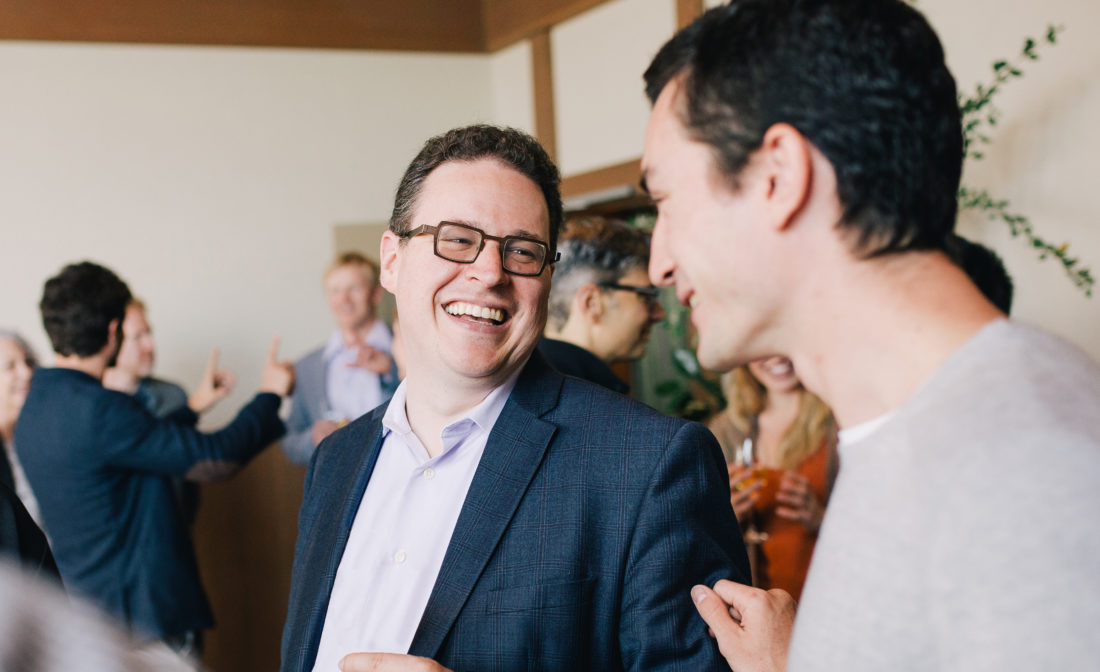
――最後にSDGsについて伺います。17のゴールには教育に関するものもありますが、それに対する率直なご意見をお聞かせください。
目標4…「質の高い教育をみんなに」ですね。もちろんすばらしいことですが、現実には大きな問題を抱えています。それは「質」の問題です。世界の多くの教育機関は「質」を吟味せず、いかに大勢の若者に教育を提供するかということだけに躍起になっています。その結果、教育の質は落ち、簡素で味気ないものになっている。教育はもっと洗練されたものであるべきですし、大きな影響力を持つべきものではないでしょうか。
「質の高い教育を大勢の人々に普及させるのは簡単なことではない」というのが、私の意見です。SDGsはレベルが高くよい目標だと思いますが、それぞれのゴールについて実際にどのような変化を起こすべきかというところまでは考えられていないと感じます。教育について言うと、まずは既存のシステムの問題を洗い出し、正しい形にすることが必要です。広げるのは、質の担保ができてからです。本質を見失ってはいけません。教育とは、常に変化し形を変えることでよりよいものになる、そのプロセスにあるはずです。これこそ私が世界に向けて主張したいことです。
The goal of “quality education” reads in part, “quality education…for all.” Of course that’s a wonderful objective. In practice there is a great problem associated with achieving it. That’s the problem of quality. Many of the world’s educational institutions pay scant attention to quality, being eager instead to provide some sort of education to as many young people as possible. As a result, the quality of education is declining, becoming oversimplified and dumbed down. Education must be something much more refined, so that it can have an enormous impact on the world.
My view is that spreading high-quality education to great numbers of people is no simple feat. The SDGs are good, ambitious targets, but I have the impression that the people who framed them didn’t do too much thinking about the practical question of just what changes have to be made to attain them. When you talk about education, the first task is to flush out what the problems are in existing systems, so that they can be put right. Spreading education widely should only be done once you can guarantee quality. We mustn’t lose sight of the essence of the problem. Education is a process of making things better through constant change. This is the point that I would like to emphasize to the world.
――ありがとうございました。
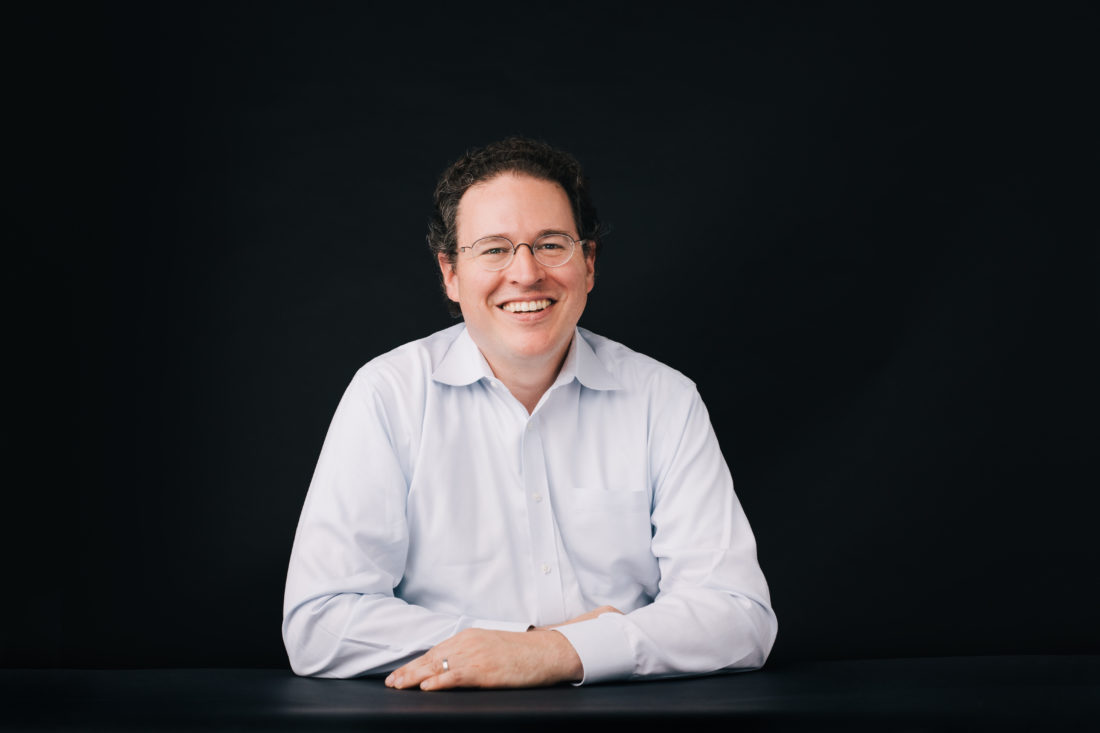
<プロフィール>
ベン・ネルソン Ben Nelson
ミネルバ大学の創立者。ペンシルバニア大学ウォートン校で経済学を学ぶと同時に、大学教育改革のビジョンを育む。卒業後はオンライン印刷のスタートアップ企業Snapfishに参画。2005年から2010年までCEOを務め、同社を世界有数のオンライン写真印刷サービスに育て上げた。2011年にミネルバ大学を開校し、2014年9月には1期生が入学した。先見の明を持ち、高等教育の変革に情熱を注いでいる。
掲載紙
今回のインタビューは、東洋経済新報社と株式会社WAVE/WAVE・SDGs研究室が制作した「東洋経済ACADEMIC SDGsに取り組む大学特集 Vol.3」に掲載されています。
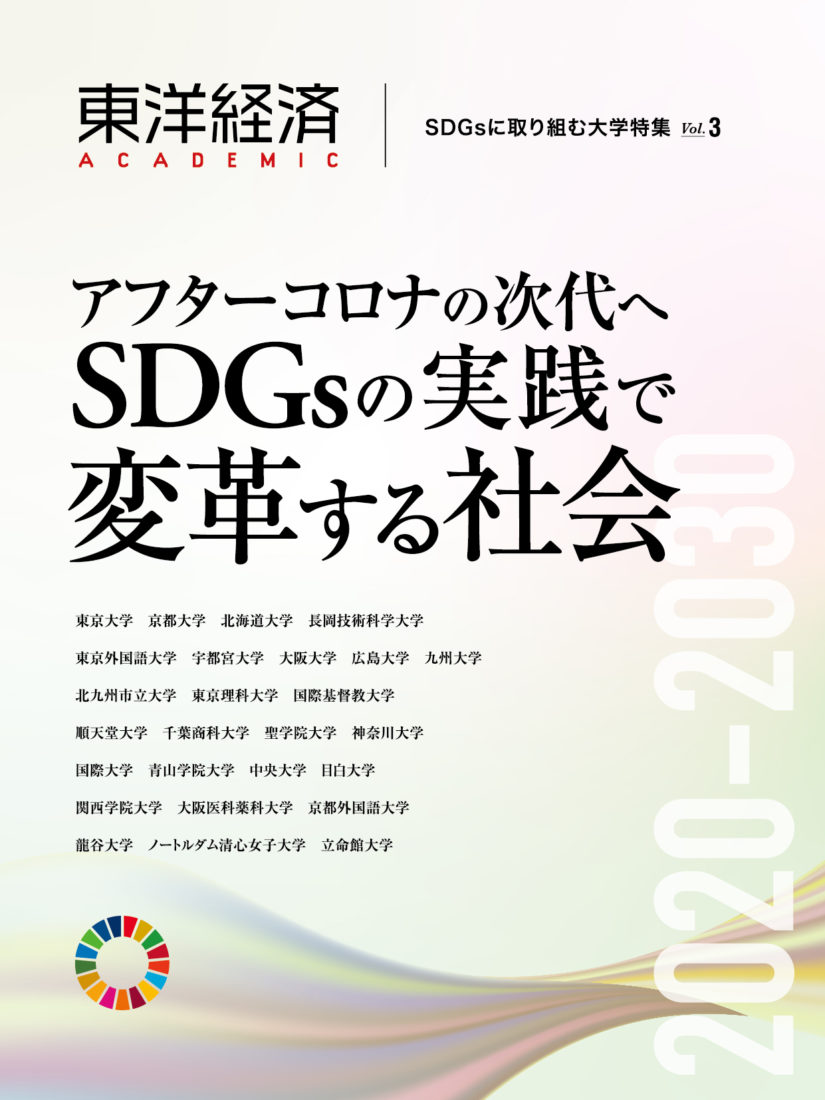
東洋経済ACADEMIC
SDGsに取り組む大学特集 Vol.3
-アフターコロナの次代へ
SDGsの実践で変革する社会
SDGsが国連サミットで採択されてから約6年が経過し、2020年から「行動の10年」がスタート。SDGsが世間に浸透し始め、大学や企業による実践が加速する中、折しも「コロナ禍」によって、旧来の社会システムを抜本的に問い直し、真に持続可能性な世界を希求する機運が高まっている。本誌では、社会混乱に対応しながら教育を提供し、地球規模の課題に取り組み続ける教育研究機関・大学の姿をレポートする。また、産業界やアカデミズムから生まれつつある、次代を切り拓く鍵となる新指標やアイデアを考察し、未来社会のあり方に迫る。





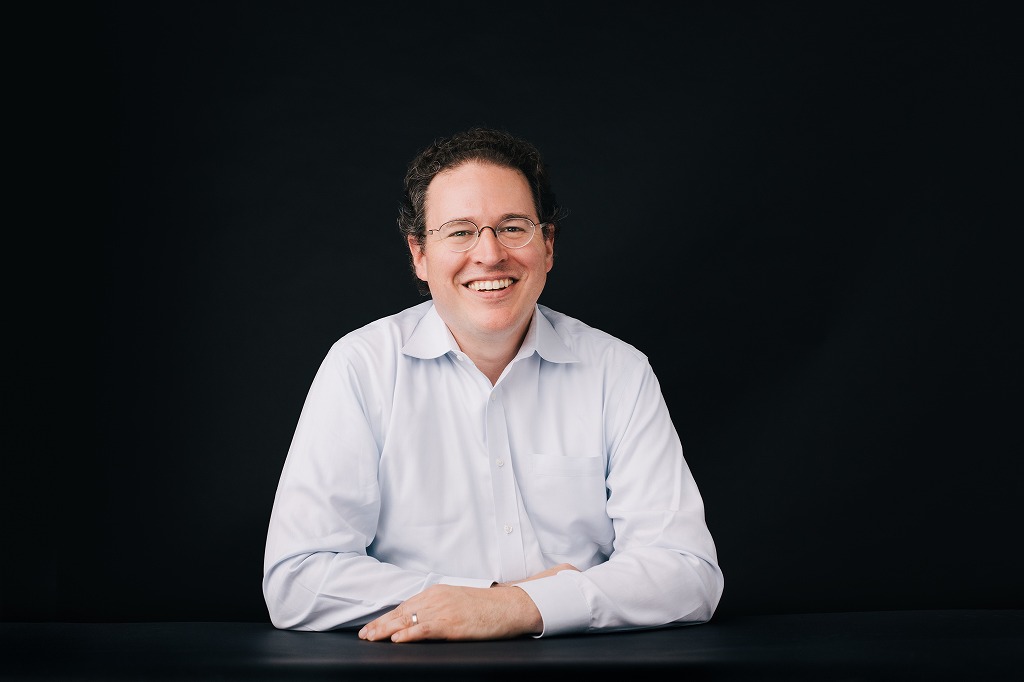
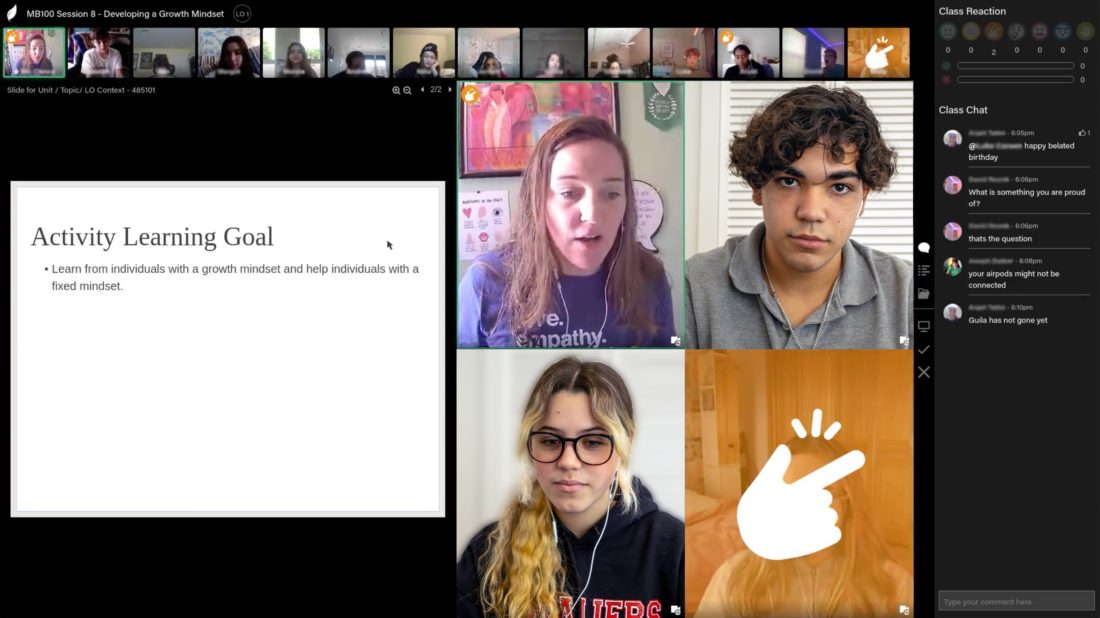
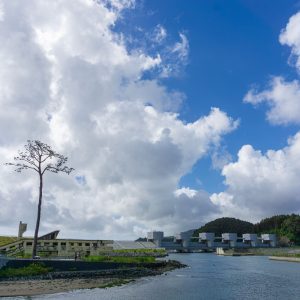
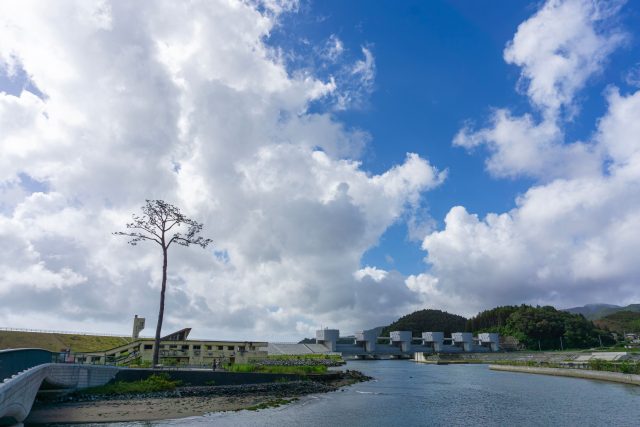
 研究員のSDGsな日々
研究員のSDGsな日々
